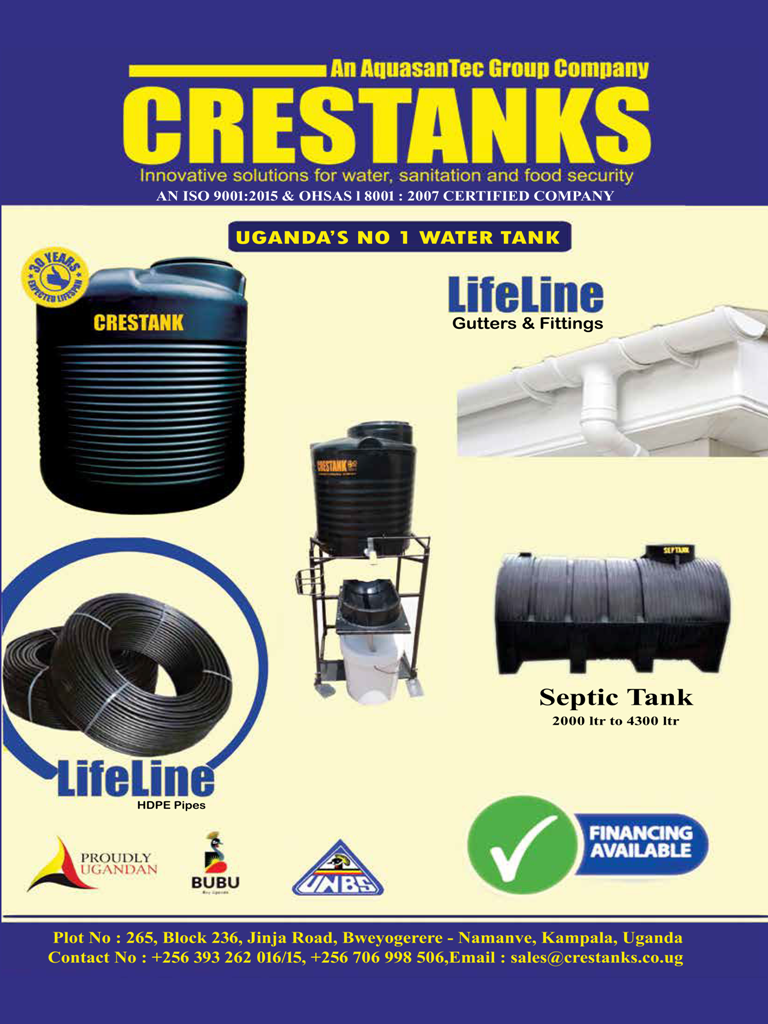By Felix Okello
MARACHA – Espionage is a common tool that authorities use to ensure that security is provided for communities and existing states. But it can also be treated as a crime, more so in high stakes engagements between countries.
This is not the case for the locals of Maracha district, who have embraced espionage for the purpose of ensuring that every home has a latrine and improved sanitation.
The households are grouped in clusters of ten. Each household spies on the next if there is improper disposal of waste, lack of latrines and rubbish pits, lack of drying racks or inability to maintain a clean compound.
The locals are asked to report to the local council authorities any household without the requisite sanitation facilities. Then a group of youths are called in to construct a latrine using materials that must be provided by the household owner.
This approach has earned Maracha the accolade of the district with the best sanitation coverage in the country with 91 per cent mark.
On Friday, March 15th, 2019, the district hosted the Sanitation day, which took place at Oluvu primary school ground in Oluvu Sub-county, as a reward for its efforts to ensure that every resident has good sanitation facilities. Oluvu Sub-county has 62 villages and six parishes.
The national celebration for Sanitation took place under the theme “Good Sanitation; My responsibility.”
ORIGIN OF SPYING
Locals say mutual spying of each other has helped to reduce on deaths resulting from water borne diseases like cholera, dysentery and typhoid.
One of the locals who also spies on his neighbours is Denis Onziwa, a resident of Ongoro Godria village, Ombaci Parish in Oluvu Sub-county. Onziwa says the idea of spying on neighbours without good sanitation facilities emerged in 2014 following outbreak of cholera in 2014, which emanated from neighbouring Democratic Republic of Congo.
“We spy in a way that when a family does not have pit latrines, or waste disposal bins, or do not clean their surroundings, we report them to the local council authorities. The authorities then make that family to construct a pit latrine,” he said.
Onziwa added that during that time, there was booming trade between residents and Congolese at the Malaba border in Oleba Sub-county and there was free movement, but eventually the Congolese started to confiscate properties and merchandize from Uganda traders.
The Technical Assistant in Ministry of Health, David Katwere, says Maracha stands head and shoulders above the average national coverage in both hand washing and provision of sanitation facilities.
“In sanitation, Maracha has 91 per cent coverage whereas the national target is 79 per cent, and hand washing is at 65 per cent, which is nearly twice the national average of 34 per cent. We hope that the good performance of Maracha will be emulated by the other districts to improve on their sanitation coverage.”
Katwere says the various stakeholders like Water Aid, Uganda Sanitation Fund, Water Mission and Amref played a big role in promoting good hygiene and sanitation in homes across the country.
Water Aid has particularly supported the publicity campaign that is bringing water and sanitation issues to the centre of public consciousness.
Mr Onziwa from Ongoro Godria village said they agreed as a community to enforce good sanitation practices because of the rampant open defecation as most homesteads had no pit latrines, yet the Congolese were also crossing into Uganda freely.
“We introduced mulango kumi (ten households) grouping system to monitor each other and residents acted as spies to report anybody who did not have latrines,” Mr Onziwa said.
POSITIVE RESULTS
The current LCIII chairman of the Sub-county, Atiku Simon, said since the Mulango Kumi was introduced, there has been improvement in latrine coverage, hand washing and safe water coverage through the support of a non-governmental organization, SNV, which had been implementing a WASH project in the area.
Atiku said Oluvu primary school where the celebration was held on Friday was also chosen because it emerged as the cleanest school with the best sanitation during the sanitation school competition for Maracha district.
Other primary schools in the sub-county are Galia which won the best behavioural change and Narakua which won in hand washing. Each school was awarded a rain water harvesting tank for the construction of a hand washing facility.
According to Maracha district statistics on latrine usage, hand washing and water coverage that were presented by the Chief Administrative Officer Mr Joseph Lomongin, the district has performed very well in terms of sanitation indicator.
“We have been able to perform well because we also received funding from Uganda Sanitation Fund. The efforts of the cultural and religious leaders who use the morning community prayers to preach about sanitation were also not in vain,” he said.
Lomongin said out of the district’s population of 181,000 people, latrine coverage stands at 91 per cent, up from 80 per cent in 2014. On the other hand, hand washing is at 65 per cent, rising twofold from 29 per cent in 2014. He stated that water coverage is at 80 per cent, with 256 boreholes and 70 protected spring wells in the district.
In the current financial year, the district received Shs 280 million which was used for drilling and installing eight boreholes.
The Minister of State for Primary Health Care, Dr Joyce Moriku Kaducu, warned residents who live in slums against disposing their excreta on streets and water channels because it exposes them and other people to a great risk of contracting diseases associated with poor sanitation and hygiene.
“In Kampala city we still have people who defecate in black polythene bags at night then they dump them on streets and water drainage channels. This is what caused the recent outbreak of cholera in the city,” the Minister said.
The MP for Maracha, Denis Lee Oguzu, said: “Sanitation cannot succeed without other functional facilities like water. These communities, where boreholes have broken down, will have difficulty in improving on their sanitation. So government must ensure that the water points become functional.”



















